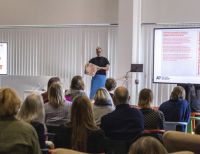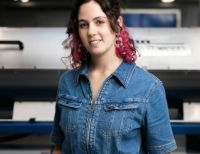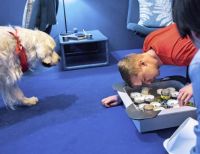Clean Propulsion Technologies, a Finnish consortium, is looking for new solutions for environmentally friendly and efficient sea transport and for work machinery. Increased international competition and tougher legislation on emissions are spurring Development work of the different fields. Taking part in research funding granted by Business Finland are six research organisations and nine enterprises. Research organisations and companies are developing new products out of the most promising and most innovative power plant technologies. In the long term, a shared technology development plan will be developed for both fields, which will also offer a stable path for meeting the requirements set for 2050.
Three research groups from Aalto University are taking part in the project: The control engineering research group at the School of Electrical Engineering, which is headed by Docent Kai Zenger, the research group of energy conversion at the School of Engineering, which is headed by Professor Martti Larmi, and the mechatronics research group headed by Professor Kari Tammi.
“Our common goal in the consortium is to ensure a position of global technology leadership for Finland's power plant technology by creating a shared vision and business solutions that comply with sustainable development”, says Professor Maciej Mikulski of the University of Vaasa. Mikulski is the director responsible for the Clean Propulsion Technologies project.
The most significant technical results that can be expected from the project are the groundbreaking medium-speed multifuel engine that utilises reactivity-controlled compression ignition (RCCI) and a fast-running hydrogen engine solution. The study also focuses on the development of progressive recirculation of exhaust gases, hybrid power devices, and the control of predictive power transmission. The whole forms an ecologically, socially, and economically sustainable business model.
A study is under way at Aalto University for developing virtual sensors as well as machine learning algorithms connected with them for the reduction of nitrogen oxide and carbon dioxide in new multifuel engines and secondary treatment systems.
‘Model-based controls are being developed for a new generation of low-emission engines, which requires precision modelling based on fluid calculation and the development of models to fit with control design. Optimum guidance systems are being developed for hybrid systems formed by several energy sources. The results will be evaluated both through simulations and practical tests’, Kai Zenger says.
Clean Propulsion Technologies (CPT) is one of the projects of the Engine Research Initiative (ERI) consortium. The Engine Research Initiative is a research consortium comprising Finnish universities and Wärtsilä that is looking for future technical solutions specifically for the development of new energy-efficient and low-emission technologies especially for the shipping industry and machinery.
The CPT project consortium comprises six research organisations (The University of Vaasa, Aalto University, the University of Tampere, Åbo Akademi University, VTT, and LUT University) as well as nine companies (Wärtsilä Finland, AGCO Power, Meyer Turku, Napa, Dinex Finland, Proventia, Geyser Batteries, Bosch Rexroth and APUGenius). The total budget of the project is about € 15 million of which € 7.9 million is from Business Finland. The companies and universities will fund the rest.
Further information:
Kai Zenger
Docent, Aalto University School of Electrical Engineering
tel. +358 50 4096 252
[email protected]
Anne Kosola
Manager, Corporate Relations Aalto University
tel. +358 50 5969 395
[email protected]
Maciej Mikulski
Head of Project, Professor, University of Vaasa
Tel. 358 29 449 8591
[email protected]
















